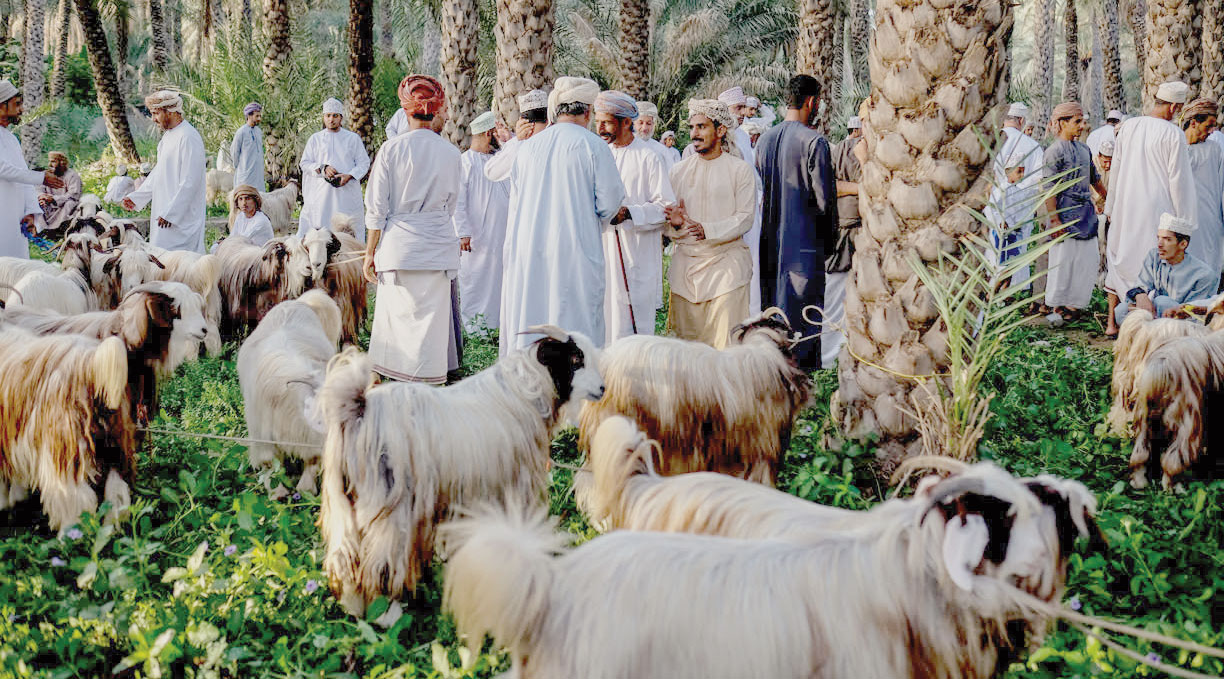

Muscat, August 28 - The season of Al Habta souqs — the traditional markets that mushroom across the country in the lead-up to Eid festivities — begins at key locations around the Sultanate on Tuesday. These old-world bazaars, which are far removed from the commercial centres and shopping malls of the modern-day marketplace, are set to be held in a number of wilayats and governorates, including Muscat Governorate, North and South Al Batinah, North and South Al Sharqiyah, and Al Dakhiliyah. However, the most popular Al Habtas will be located in the Wilayats of Nizwa, Al Rustaq and Niybat of Sinaw.
An integral part of Eid festivities, Al Habta souqs are hugely popular with tradition-minded Omanis who depend on these rustic bazaars for some of the foodstuff, merchandise and locally produced ingredients essential for the celebration of a traditional Eid holiday.
Typically held under a canopy of date palms, these old-style markets attract people — buyers and sellers alike — from surrounding villages and towns.
In addition to auctions of local livestock such as goats, cows and camels, habtas also feature a wide array of locally cultivated farm produce, spices, fruits and vegetables, dried fish, date palm products, handicrafts and other merchandise.
For womenfolk, there is a wide collection of traditional garments, embroidered material, henna, jewellery and accessories to choose from.
Children are typically drawn to stalls offering toys, sweetmeats, and assorted goodies. The emphasis is primarily on locally produced goods.
Despite advancing modernity, habtas continue to be well patronised ahead of Eid, according to Said al Araimi, who owns a livestock farm in Sur. “The habta starts as early as 5 am and runs until 1 pm, with business peaking during the 8 – 10 am timeframe. I know a lot of Omanis who frequent these traditional markets for locally farmed livestock of the kind that I breed,” he told the Observer. For the upcoming Eid al Adha, Al Araimi plans to sell his livestock at habtas in Jalaan Bani Bu Ali, Jalaan Bani Bu Hassan and Al Kamil Wal Wafi.
The going rate for a locally farmed goat can start from RO 150 while a cow can fetch as much as RO 350 depending upon its weight and age. Demand is usually very strong for local animals because they make for excellent-tasting meat dishes, he adds.
Hammam al Badi
Oman Observer is now on the WhatsApp channel. Click here



